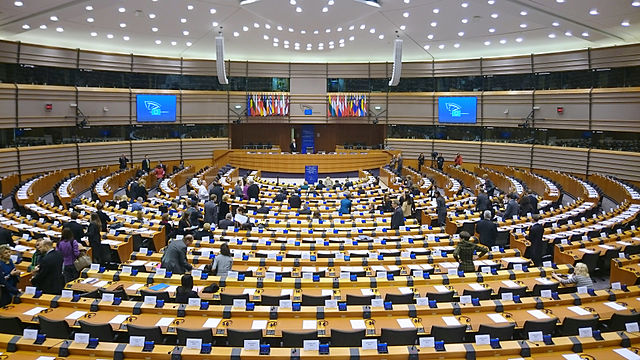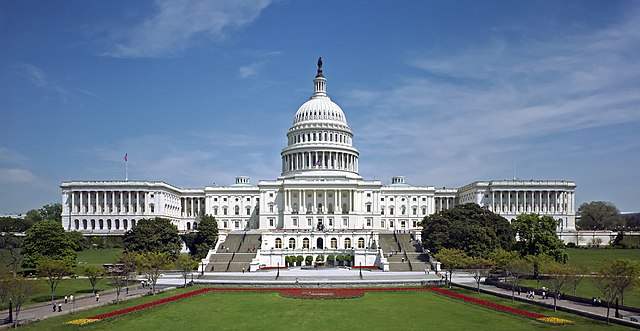The European Parliament (EP) is one of the legislative bodies of the European Union and one of its seven institutions. Together with the Council of the European Union, it adopts European legislation, following a proposal by the European Commission. The Parliament is composed of 705 members (MEPs), due to rise to 720 after the June 2024 European elections. It represents the second-largest democratic electorate in the world, with an electorate of 375 million eligible voters in 2009.
Image: European Parliament Strasbourg Hemicycle Diliff
Image: Hémycicle du Parlement européen (Bruxelles)
Session of the Parliamentary Assembly of the Council of Europe in the former House of Europe in Strasbourg, France in January 1967. Willy Brandt, West German minister for Foreign Affairs, is speaking.
A plenary session in the Palace of Europe in April 1985, in Strasbourg, France. It was the EP's hemicycle until 1999 when a new building was constructed in Strasbourg, France.
A legislature is a deliberative assembly with the legal authority to make laws for a political entity such as a country, nation or city. They are often contrasted with the executive and judicial powers of government. Legislatures can exist at different levels of government–national, state/provincial/regional, local, even supranational. Countries differ as to what extent they grant deliberative assemblies at the subnational law-making power, as opposed to purely administrative responsibilities.
United States Capitol building, where the legislature of the United States, the United States Congress, meets, located in Washington, DC
The Congress of the Republic of Peru, the country's national legislature, meets in the Legislative Palace in 2010.
The German Bundestag, its theoretical lower house
The Australian Senate, its upper house








